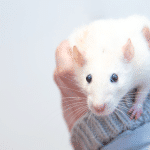In a case brought by Cruelty Free International, (“CFI”) the High Court ruled on 5 May 2023 that the UK government was acting legally when it relaxed its policy ban on animal testing for cosmetics in 2019. However the judge, Mr Justice Linden, acknowledged that the relaxation of the ban was not legally required (as the government had argued), and that the ban could be lawfully reinstated by the government.
On 17 May 2023, the Home Secretary announced in a statement to Parliament that the ban would indeed be reinstated as “…no new licences will be granted for animal testing of chemicals that are exclusively intended to be used as ingredients in cosmetics products.” https://questions-statements.parliament.uk/written-statements/detail/2023-05-17/hcws779
The conduct of scientific tests on animals in the UK is only authorised through a licensing system under the responsibility of the Home Office, pursuant to the Animals (Scientific Procedures) Act 1986. License applications are determined according to a harm/benefit analysis; i.e. the harm to the subject animals weighed against the benefits of carrying out the test. Since 1998, the Home Office has publicly maintained a policy to refuse license applications to test substances used exclusively or mainly as cosmetics ingredients.
This policy was consistent with the EU-wide bans in the subsequent Cosmetics Regulation (EC) No 1223/2009 on animal testing for cosmetics (and marketing of cosmetics products and ingredients that had been tested on animals after a designated cut-off date).
However In 2014 the EU Commission and the European Chemicals Agency (“ECHA”) issued a Joint Statement to the effect that animal testing could be licensed to meet the requirements of EU chemicals legislation, known as REACH Regulation (EC) No 1907/2006, for the purposes of assessing worker safety in the cosmetics manufacturing process.
In response to correspondence from CFI raising concerns about the 2014 Joint Statement, the Home Office categorically re-affirmed in 2015 that the policy was an “absolute ban”, in place for ethical reasons, and a subsequent newsletter to establishment license holders stated that “The UK’s policy ban remains in place even where EU legislation would appear to require or permit such testing”.
In 2021, correspondence between the Home Office and CFI confirmed that the Home Office had changed its policy, and had actually been granting licenses for animal testing since February 2019. This occurred following concerns raised with the Home Office by the ECHA and contract testing organisations as to the market impact of the UK’s stricter policy position i.e. the potential for testing work to be lost to overseas establishments.
The change in policy had not been publicly announced or formally consulted on, and indeed internal government documents noted that this change “would be viewed by the public as a reduction in the protection offered to animals and would be publicly and politically highly undesirable. Thus any communications in this area are likely to be highly sensitive.”
Both the Cosmetics Regulation and the REACH Regulation are retained EU law following the UK’s exit from the EU.
The Home Office argued that it was legally required to allow animal testing for purposes of worker safety under REACH, and aligned its policy with the approach of the ECHA. This position was reinforced by EU cases brought by Symrise AG in 2020 (Case nos A-009-2018 and 010-2018), arguing that certain animal tests would be contrary to the Cosmetics Regulation. The decisions in these cases were challenged and are now pending judgment by the EU General Court (Cases T-655/20 and T-656/20).
The case brought by CFI sought judicial review of the Home Office’s interpretation of the REACH regulation, and its conduct in relation to the policy ban based on 4 grounds of challenge:
- (1) the application of the harm/benefit analysis;
- whether there had been a breach of CFI’s legitimate expectations and/or public law principles of fairness due to:
- (2) the failure to consult stakeholders prior to the change in policy; or
- (3) the failure to inform CFI and/or the public generally of the change in policy.
- (4) whether the Home Office’s interpretation of the Cosmetics Regulation and REACH in accordance with the Symrise case is legally erroneous.
Ground 1 was determined based on factual evidence, since the judge accepted that a harm/benefit analysis was carried out for each application, and was not subject to a blanket policy decision.
On Grounds 2 and 3, the judge drew a very clear distinction between the interests of CFI (as an animal protection organisation), as compared to the (economic) interests of the establishment license holders. It could be inferred that the court views the interests of the former as being subordinate to the latter, since the court rejected both grounds of challenge and did not agree that the lack of consultation with stakeholders such as CFI, or the lack of public communication of the policy change was unfair as a matter of law, despite the informal communications that had taken place with the testing establishments. The judge however observed that the Home Office’s failure to publicly announce the change in policy was “regrettable”.
On Ground 4, the court essentially agreed with the Board of Appeal in the Symrise case, but CFI was given leave to appeal on this aspect.
However the judge did not accept the government’s position that it was legally bound to permit animal testing in line with the EU approach, and noted that the Home Office “has modified the policy position for pragmatic reasons rather than being driven to do so by Symrise or any legal requirement.” The judge stated that it would be open to the Home Office to change its policy and could reinstate the ban.
In her statement reinstating the ban on 17 May, the Home Secretary acknowledged the “public concern around the testing on animals of chemicals used as ingredients in cosmetics, and the new opportunities available to us to depart from the EU testing regime’, and also identified the increasing role to be played by non-animal methodologies.
This case raises a number of key issues following the various legislative and political developments on this sensitive topic over the last two decades. A-Law has just published a more thorough briefing note in the May 2023 edition of the UK Journal of Animal Law.
The full judgment may be found here: https://caselaw.nationalarchives.gov.uk/ewhc/admin/2023/1064

About the author:
Blanche is a dual-qualified UK lawyer (UK & New York) with a long-standing interest in animal protection. She volunteers with A-Law as Treasurer and also as Co-Chair of our Research Animals working group.


















